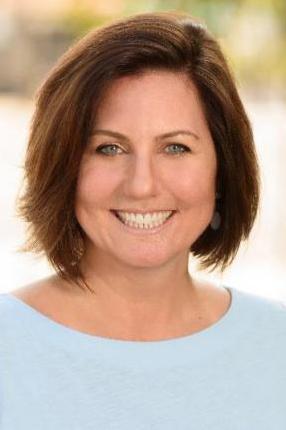UNC MPA sits down with alumna and adjunct faculty member Katie Loovis to discuss her career and her thoughts on the MPA for preparing public service leaders

Meet alumna and instructor Katie Loovis and hear her thoughts on a public service career, leadership, and the MPA program. Along with her work with the UNC MPA program, Professor Katie Loovis was recently named as Executive Director for the North Carolina Community Colleges Foundation.

What do you teach in the MPA program, and how long have you been affiliated with the program?
I have the pleasure of teaching Nonprofit Management (PUBA 756) to UNC-Chapel Hill Master of Public Administration (MPA) students and many other master’s students who join the course from other disciplines, including business, public policy, and law; as well as some exceptional undergraduate students who want to challenge themselves with a masters-level course. I taught this course in the fall semester of 2021 and will do so again this Fall 2023.
I’m a 2002 graduate of the UNC MPA program and have enjoyed staying in touch with several MPA classmates and UNC School of Government (SOG) faculty members and administrators over the last twenty years. Also, I previously served on the MPA Alumni Association Board of Directors and now serve on the SOG Foundation Board of Directors. As you can imagine, I feel a kindred spirit with those in the MPA program and so appreciate and respect everyone at the SOG for continuing to hold dear the values of being non-partisan, policy-neutral, and responsive.
What’s your education background?
I earned a BA in communication studies with honors in 1999 and an MPA in 2002 from UNC-Chapel Hill, and am currently earning an EdD from NC State in Community College Leadership. I expect to complete my doctorate in 2024. At the same time, I earned a 100-hour graduate level teaching certificate from NC State, which has helped inform my teaching philosophy and practice in the classroom at UNC.
I love been looking at careers like yours – ones that take a lot of pivots. You’ve been in government, business, non-profit. You’ve focused in workforce development and now education. You’ve gone from nationally focused work to more locally focused work and now state focused work. What is the common thread in your career?
I am really grateful to have had such an interesting and meaningful career journey that has allowed me the opportunities to serve in the public (White House), private (GSK), and nonprofit (Achieving the Dream) sectors, as well as with the US Chamber and a local chamber of commerce.
Public service has been a common thread throughout my career. Looking back, I’ve been drawn to the place where the sectors intersect for the good of communities and individuals. I have found that big, thorny issues like closing achievement gaps, increasing access to medicines, or improving the talent pipeline requires leaders from business, government, and the nonprofit sectors to work together. No one sector can do it alone! I really enjoy being at that point of intersection where the sectors come together with shared vision, programming, and accountability, and, together, make a measurable and lasting impact in the lives of others.
Most recently, I’ve had the honor of being a part of a collective impact initiative, called the Summer Careers Academy, which was selected into the UNC SOG’s ncIMPACT “Carolina Across 100,” “Our State, Our Work” initiative. The SOG is a true think tank/do tank when it comes to sector intersection and accelerating positive results for our state. Anita Brown-Graham and her team at the SOG deserve a lot of credit, recognition, and support for their groundbreaking work in partnering for the public good!
Talk about something specific you try to teach your students that you have found as necessary and an important part of all your roles (can be a skill, attribute, concept, etc.)
There is a wonderful Chinese proverb that says, “Tension is who you think you should be. Relaxation is who you are.”
I have found many UNC students to be intelligent, dutiful, high achievers. While these are virtuous attributes, they can be limiting factors when students are trying to make sense of the best career pathway for them, especially if they want their career to be an extension of their life purpose. The path of public service, especially with local non-profit organizations, while tremendously meaningful, requires a great deal from its executive directors. I try to give my students a realistic perspective of the many responsibilities of a non-profit executive (as well as the joys!) and also give them the opportunity to reflect on their own personal and professional skills and aspirations.
“Throughout the semester, I invite students to pause and engage in reflection activities to consider who they are, how they are built, and what career pathway(s) are most aligned and will make their heart sing.”
My hope is that, whether they choose to become a paid non-profit professional or a volunteer serving on a non-profit board of directors, they will be well-equipped to add a lot of value and make a positive and lasting difference. (Here is a transcript of a keynote speech I delivered to the Chapel Hill Magazine Women of Achievement 2019 event, which brings this theme of purpose and leadership together.)
In thinking about the course of your career, where do you give credit to its success? In every role that you’ve considered or passed up or taken, what has helped you in navigating the course?
I have benefited in my career from the help of so many people along the way, especially those who coached me through UNC Athletics, taught me at UNC and now at NC State, and those colleagues who gave me great career advice and championed me behind closed doors when employment decisions were made.
One great piece of advice I received from a former White House colleague was: “say yes.” I took this to heart and despite having demanding jobs, I said yes to opportunities to meet with many people I would not have met otherwise. Through these new connections and acquaintences, I also experienced exciting doors open for me, so I encourage all of my students to ‘say yes’.
What do you learn from your students?
My default mode of operating is to be very focused on getting things done. There is not much I love more than checking things off a to-do list. However, being an educator is helping me shift my focus more to other people and their long-term success. Students have really stirred in me a deep sense of compassion for where they are and the challenges they are navigating. As an educator, I see myself as a facilitator of my students’ learning journey. Facilitation is more than simply lecturing, it is helping students connect their personal and professional interests and goals to the course objectives and outcomes, and then encouraging them to explore new ideas and concepts, guiding them through the learning process, and motivating them to apply new knowledge and skills.
Leadership is an important part of the MPA program, and leadership is an important aspect of your new role as Executive Director. This isn’t an interview, but what do you want to say to us about leadership?
Leadership is one of my favorite topics to study. In fact, through my dissertation, I have found that leadership and management are two distinct concepts that are often muddled together. My favorite way to distinguish the two is what Bennis and Nanus (2007) said: “Managers are people who do things right and leaders are people who do the right thing.” This purposeful distinction is so important. Public servants must be good at both. Sometimes these two things can be diametrically opposed – managers can be working to maintain the very systems leaders are trying to change – and therein lies the tension. The School of Government does an extraordinary job at helping public servants understand these leadership/management pain points, make sense of their options, and equip them for the path ahead.
I have enjoyed learning about the School of Government’s Center for Public Leadership and Governance and the work that Peg Carlson and her team are doing to build up teams of public servants across the state who can successfully navigate leadership and management challenges.
What advice do you have for those considering a public service career or a career change to the public sector or to those who want to impact in some area but are feeling frustrated.
No matter what career pathway you choose, the reality is that we are living in rapidly changing times. I’ve enjoyed following futurist Heather McGowan who talks about how “the future of work is learning.” She says workers today are likely to have 17 different jobs across 5 different industries and, going forward, 25% to nearly 50% of the work we currently do will be replaced with technology in the next ten years (McGowan, 2019). While nearly all careers are changing, the field of public service has dynamic and important job opportunities in the public, private, and non-profit sectors. I encourage students to keep an open mind and heart about the different sectors of service, and to remember that as Picasso said, “Your call is to find your gift, and your purpose is to give it away”.
